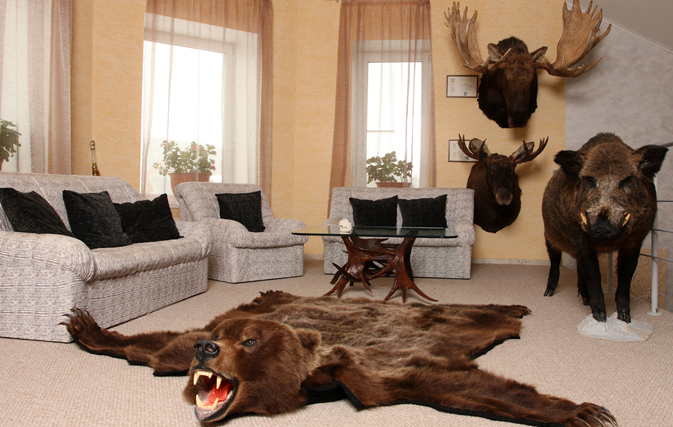LAGOS, Nigeria — The United States is working with Zimbabwe and other African countries to develop sustainable trophy-hunting that will help preserve, not wipe out, endangered species, Secretary of Interior Sally Jewell said Tuesday.
The U.S. is not allowing trophy imports from Zimbabwe because its program does not ensure sustainable futures for species nor does it channel to local communities some of the proceeds from hunts that can cost hundreds of thousands of dollars.
“Zimbabwe has not got a program that to our satisfaction addresses those issues, whereas a country like Namibia does. It’s very important that the resources get to the people where the animal is hunted,” Jewell said in a conference call.
An American killed a well-known lion named Cecil in Zimbabwe in an allegedly illegal hunt last year, causing an international outcry as the population of lions in the wild has dwindled.
Last month, the U.S. announced it will protect lions in Africa under the Endangered Species Act by making it harder for American big-game hunters to bring a lion head or hide into the country. Import permits will be conditioned on proof that hunting is part of a science-based conservation strategy that enhances the species in the wild.
“So when American hunters participate in hunts overseas, they need a permit … to ensure that trophy-hunting is contributing directly to the conservation of that species in the country involved,” Jewell said.
She recently visited consumer nations China and Vietnam to try to establish “a common understanding” of the benefits and risks that trophy-hunting carries for a species, she said.
Jewell spoke on the eve of a trip to some provider nations in Africa – Gabon, Kenya and South Africa.
The head of President Barack Obama’s task force on wildlife, Jewell said her job includes telling “citizens that killing elephants for trinkets is not cool” to ensure that “these magnificent animals” will be there for future generations, not just be images on a video.
The United States is “part of the problem” of illegal trafficking, she said, but the Obama administration is committing more resources to help Africans protect their wildlife and to prosecute those in the United States involved in a lucrative black market driving some iconic species to extinction.
She said a telling moment for her was a visit to the National Wildlife Property Repository in Commerce City, Colorado, which holds confiscated products “that turn your stomachs,” from tigers turned into carpets, whole rhino heads and designer brand handbags and sunglasses that she asked be put out front “so people know that these brands also are associated with wiping out wildlife species.”

